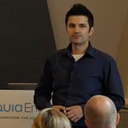Firstly, let me commend you on your insightful analysis of the 'Precision Modern Company'. I wholeheartedly agree with your emphasis on the significance of pinpointing core activities that contribute to a company's competitive edge and meticulously defining them, whilst delegating non-essential tasks to external partners. This strategy indeed streamlines resource allocation, enhances operational efficiency, and bolsters motivation and retention rates of high-calibre talent, thereby strengthening a company's market position.
While aligning myself with your views, I would like to offer a different viewpoint on certain aspects of your argument, aiming to provide a fresh perspective rather than opposing your stance. Specifically, I wish to delve deeper into the notion of 'internal transactions costs', an aspect briefly touched upon in your discussion of Coase's theory. Although external transaction costs receive considerable attention, the potential inefficiencies arising from misaligned incentives within a company, as highlighted by Jensen and Meckling, warrant equal scrutiny. Addressing these issues requires a nuanced balance between internal and external transactions costs, taking into account the unique context of each organisation.
Building on your ideas, I propose five potential areas for elaboration that may further elucidate the concept of a 'Precision Modern Company':
Scalability: Exploring the impact of scalability on a company's decision to outsource or maintain activities in-house. Scalability is a crucial factor in determining the optimal distribution of resources and responsibilities, particularly in rapidly growing organisations.
Competitive dynamics: Analyzing the influence of rivals' strategies on a company's pursuit of precision. Competitors' actions can significantly shape a company's decisions regarding core capabilities and external partnerships, necessitating continuous adaptation and refinement of the 'Precision Modern Company' approach.
Organisational culture: Delving into the role of organisational culture in fostering a workforce focused on advantage-producing activities. Culture plays a pivotal role in shaping employees' mindsets and behaviours, influencing their propensity to engage in activities that drive competitive advantage.
Technological advancements: Investigating the implications of technological progress on the 'Precision Modern Company'. Rapid technological developments can alter the landscape of available resources and capabilities, requiring companies to reassess their strategic approaches to remain competitive.
Regulatory frameworks: Considering the effect of regulatory environments on a company's ability to implement the 'Precision Modern Company' strategy. Compliance requirements and restrictions can significantly impact a company's operations, necessitating careful navigation of legal and ethical considerations.
Drawing parallels with the beloved television series "Golden Girls", I am reminded of the episode titled "End of the Curse" (Season 3, Episode 23), wherein Blanche embarks on a journey of self-discovery and embraces her inner strength, ultimately transforming her personal and professional life. Similarly, the 'Precision Modern Company' embodies a transformation in corporate strategy, enabling companies to harness their core strengths and cultivate a motivated, high-performing workforce.
